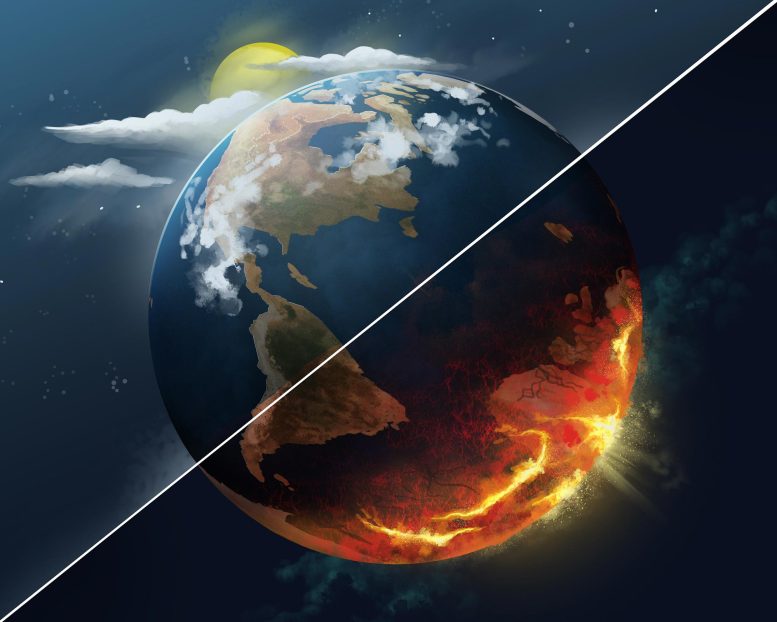
The survival of marshes and other vulnerable coastal regions hinges on the ability to restrict global warming to under 2 degrees Celsius (3.6 degrees Fahrenheit), as outlined in the Paris Agreement.
According to a recent study published in Nature, coastal marshlands and coral reef islands may not expand quickly enough to counteract the accelerating sea level rise due to climate change. Conducted by a global team of researchers, including one from Tulane University, the study emphasizes the critical importance of limiting global warming to below 2 degrees Celsius (3.6 degrees Fahrenheit), as outlined in the Paris Agreement, for the survival of these vulnerable coastal regions.
A key finding of the paper is that coastal marshes, mangroves, and reef islands are unlikely to keep pace with rates of sea-level rise that exceed 7 millimeters (about one-quarter of an inch) per year. This rate is likely to occur by the year 2100 in most parts of the world in the absence of major efforts to reduce greenhouse gas emissions.
Higher rates of sea-level rise, however, are already being observed along the Gulf Coast and previous Tulane research has shown that the current rate of sea-level rise could “drown” marshlands in Louisiana, and possibly other areas along the Gulf Coast, in about 50 years.
The Vital Role of Coastal Wetlands and Reefs
“Collectively, these are among the most valuable ecosystems on the planet. For example, the world’s fisheries depend to a significant extent on the health of coastal wetlands and coral reefs,” said the study’s co-author Torbjörn Törnqvist, the Vokes Geology Professor in Tulane’s Department of Earth and Environmental Sciences.
The study ties directly into the most recent sea-level projections of the Intergovernmental Panel on Climate Change, published in 2021. The researchers found that if global warming remains below 2 °C compared to pre-industrial temperatures, these coastal ecosystems will probably survive along many of the world’s shorelines by 2100, but higher levels of warming will likely lead to widespread collapse.
On Track for a Dangerous Future
“This shows the importance of the Paris Agreement that aims to keep warming within 2 °C and ideally 1.5 °C,” Törnqvist said. “Clearly, this would make a huge difference for coastal ecosystems. However, right now we are on track for 2.4 to 3.5 °C of warming by the end of this century, so a change of course is desperately needed. And this would have to happen very quickly.”
Even with global warming of 1.5 °C, some coastal zones will lose most of their wetlands by the end of the century. The Louisiana and Texas coastlines constitute one of those regions. The cascade of record-breaking heat across much of the world over the past few months shows that this level of warming may be reached within a matter of years.
Reference: “Widespread retreat of coastal habitat is likely at warming levels above 1.5 °C” by Neil Saintilan, Benjamin Horton, Torbjörn E. Törnqvist, Erica L. Ashe, Nicole S. Khan, Mark Schuerch, Chris Perry, Robert E. Kopp, Gregory G. Garner, Nicholas Murray, Kerrylee Rogers, Simon Albert, Jeffrey Kelleway, Timothy A. Shaw, Colin D. Woodroffe, Catherine E. Lovelock, Madeline M. Goddard, Lindsay B. Hutley, Katya Kovalenko, Laura Feher and Glenn Guntenspergen, 30 August 2023, Nature.
DOI: 10.1038/s41586-023-06448-z
The study was carried out by a team lead by Neil Saintilan at Macquarie University with colleagues based at other Australian universities, plus co-authors from Singapore, Hong Kong, the United Kingdom, and the United States. Törnqvist’s contribution to this work focused primarily on developing new methods to determine wetland vulnerability to sea-level rise in the geologic past. He was funded by the U.S. National Science Foundation.
Never miss a breakthrough: Join the SciTechDaily newsletter.
1 Comment
The coastal areas showing high rates of ‘sea level’ rise are confounded by subsidence, which has nothing to do with increasing temperatures. Actual rates of sea level rise, as measured by tide gauges and geological evidence, has been remarkably constant for the last 7 thousand years:
https://upload.wikimedia.org/wikipedia/commons/thumb/1/1d/Post-Glacial_Sea_Level.png/450px-Post-Glacial_Sea_Level.png
The claimed acceleration is from satellite measurements, where the claimed precision exceeds that describe in the engineering specifications, and ultimately depends on a gravity model with fairly coarse spatial resolution for the globe. Any coastal measurements that aren’t accompanied by a differential GPS network should be considered suspect.